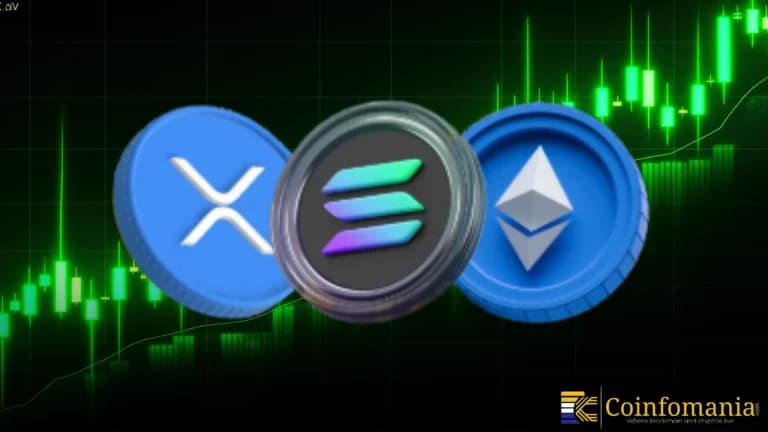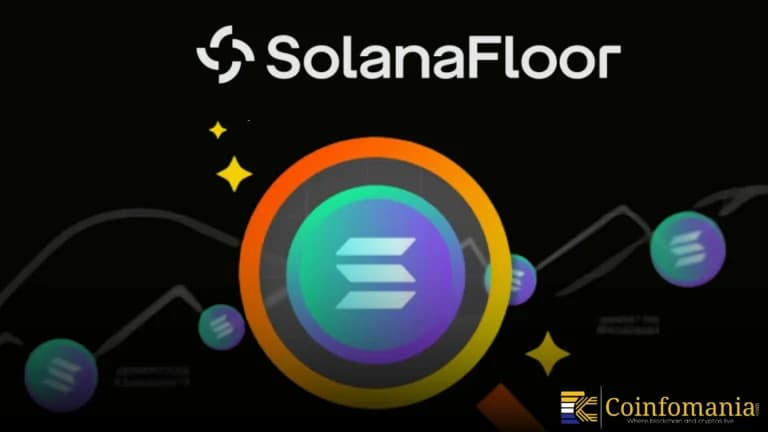Kazakhstan Stablecoin KZTE Shapes Digital Currency Future
Kazakhstan’s central bank has officially introduced Evo (KZTE), the Kazakhstan stablecoin pegged 1:1 to the Kazakhstani tenge. This is the nation’s first stablecoin. Evo launched on September 23, 2025, joining the National Bank of Kazakhstan’s Digital Assets Regulatory program. It’s a collaboration involving the central bank, the Intebix crypto exchange, Eurasian Bank, Solana, and Mastercard. […]
Kazakhstan’s central bank has officially introduced Evo (KZTE), the Kazakhstan stablecoin pegged 1:1 to the Kazakhstani tenge. This is the nation’s first stablecoin. Evo launched on September 23, 2025, joining the National Bank of Kazakhstan’s Digital Assets Regulatory program. It’s a collaboration involving the central bank, the Intebix crypto exchange, Eurasian Bank, Solana, and Mastercard.
The main goal? Streamline digital payments so they fit more naturally within Kazakhstan’s financial system. So, this is a substantial step forward as the country pushes to modernize its digital finance sector.
Can Kazakhstan Stablecoin Transform Everyday Transactions Effectively?
Kazakhstan is rolling out the Evo stablecoin, and that’s a major move for its financial sector. Governor Timur Suleimenov is making a strong play to pull the country’s financial framework into the digital finance. Also, Evo is pegged to the tenge, so there aren’t the erratic price swings you see with most cryptocurrencies. That stability? Actually, it’s a selling point here.
The brains behind the show are Intebix and Eurasian Bank, but they’re not left to their devices. Also, the National Bank of Kazakhstan keeps everything on a tight leash. That level of regulation is key for building public confidence. And it is making sure the project actually lines up with Kazakhstan’s financial game plan.
On top of that, the Kazakhstan stablecoin isn’t just about digital payments. There’s a push to boost financial literacy, so more people feel equipped and safe stepping into the digital finance world. All in all, Evo is Kazakhstan’s staking a clear claim in digital transformation. It’s leaning hard on stability, trust, and getting more folks included in the process.
How Does the Solana Blockchain Enhance Payment Efficiency?
The Solana blockchain infrastructure delivers speed and efficiency, making KZTE transactions both quick and cost-effective. Thus, with Mastercard’s involvement, the KZTE stablecoin is set up for seamless global payments and boosting practical utility. Together, this partnership puts Kazakhstan in the lead when it comes to progressive digital finance initiatives.
On the back end, Solana delivers processing of millions of transactions per second while keeping security locked down. That’s a significant benefit if you want to build a KZTE stablecoin capable of serving consumers as well as major institutions. Additionally, the strength of this technology ensures that as demand grows, KZTE remains transparent, secure, and trusted.
Will Evo Stablecoin Lead Kazakhstan To the Digital Economy
Evo (KZTE) is currently in its pilot stage. It is operating within a regulatory sandbox so the team can modify its functions without diving in headfirst. The National Bank of Kazakhstan seems to be looking toward the future, too. They want to connect KZTE with the digital tenge and make it a component of a state-backed digital asset reserve.
This is all in line with Kazakhstan’s greater plan to diversify its economy and escape the fossil fuel bubble. So, if the rollout actually delivers, the Evo stablecoin could serve as a model for other countries thinking about state-run stablecoins. And it’s likely to give Kazakhstan a serious edge in the regional digital finance space.
Kazakhstan Stablecoin Sets The Stage For Financial Innovation
Kazakhstan’s launch of the KZTE stablecoin, Evo, marks an important step forward in its digital finance strategy. By integrating Solana’s blockchain tech with Mastercard’s massive payment network, they’re pushing for faster and more stable transactions. The real takeaway? You’ve got the central bank, local financial players, and international technology partners all working together.
So, it is signaling that Kazakhstan wants digital assets baked into the country’s core financial structure. As this pilot continues, the practical knowledge they pick up could shape Kazakhstan’s digital finance future. And, let’s be real, it might even set the pace for other countries thinking of taking a similar leap.
Follow us on Google News
Get the latest crypto insights and updates.
Related Posts

GLOBAL OIL SHOCK FEARS — Strait of Hormuz Threat Sparks Panic Across Crypto Markets
Triparna Baishnab
Author

Solana Adoption: Banks and Governments Are ALL IN?!
Triparna Baishnab
Author

RIPPLE PUSHES BANKS TO ACT — Clarity Act Could Reshape Crypto Rules
Triparna Baishnab
Author